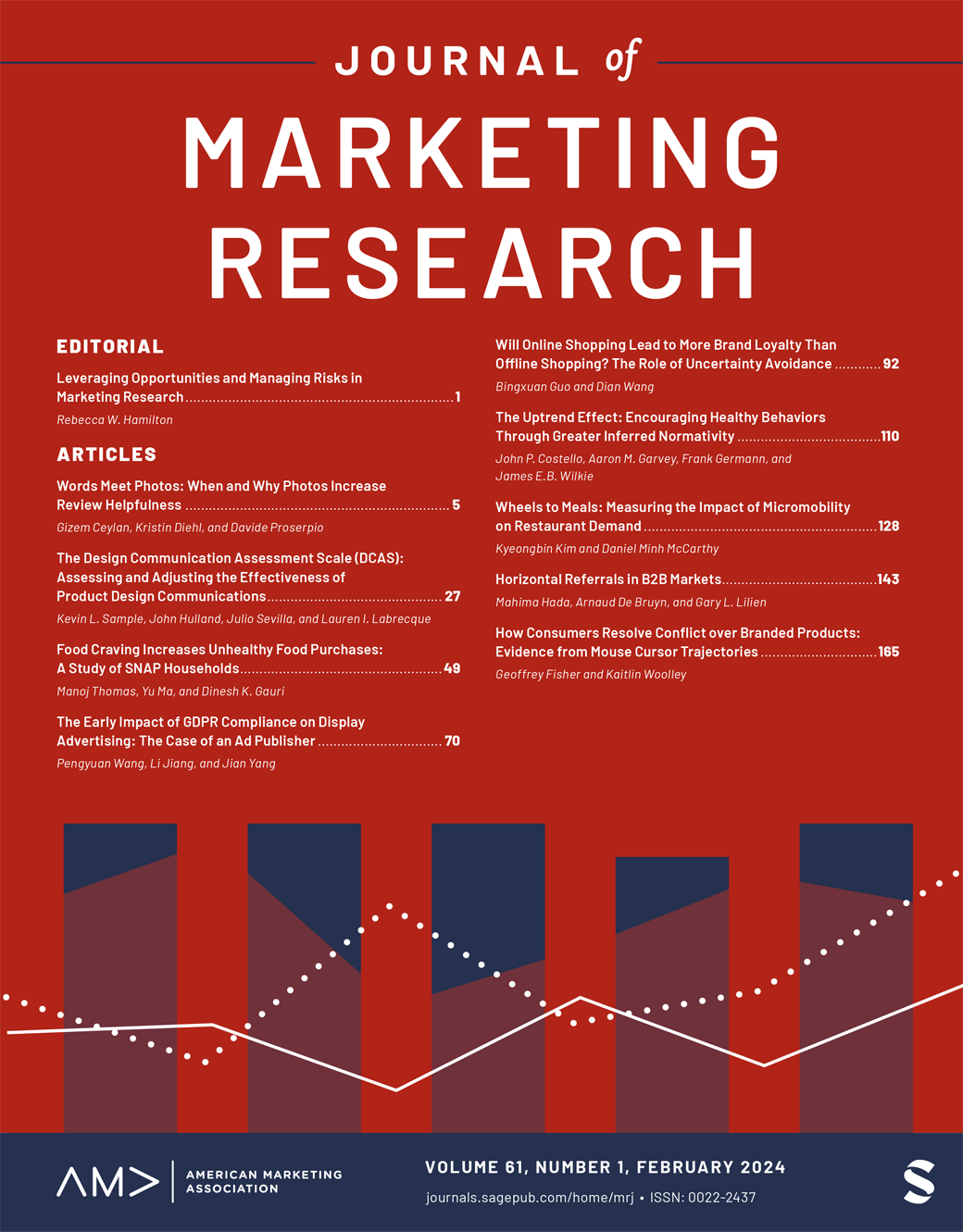快报:收入不平等下最喜爱的财产保护主观幸福感
IF 5
1区 管理学
Q1 BUSINESS
引用次数: 1
摘要
收入不平等的加剧正在损害人们的主观幸福感,许多评论家认为物质财富在这方面的作用,从而影响了营销。本研究提出了一个更微妙的论点,即某些物质财产——即最喜欢的财产——可以减轻收入不平等对主观幸福感的有害心理影响。为了支持这一命题,来自9个国家(N=3687)的实验数据和来自138个国家(N=31332)的社交媒体帖子一致表明,尽管主观幸福感通常会随着收入不平等的加剧而下降,但鼓励消费者关注他们最喜欢的财产可以减轻不平等对主观幸福感的负面影响。这是因为关注最喜欢的财产会减少消费者对物质资源和财富进行社会比较的倾向,而当收入不平等程度高时,就会出现这种情况。因此,即使消费者意识到收入不平等程度很高,相对于其他人,他们也会感到不那么被剥夺,从而缓冲了他们的主观幸福感。这些发现对消费者福利具有重要意义。特别是,在一个不平等的社会中,消费者可以对自己的生活质量感到更快乐的一种方式是避免将自己的物质财富与他人的物质财富进行比较,而是关注对他们来说最特别的物质财富。本文章由计算机程序翻译,如有差异,请以英文原文为准。
EXPRESS: Favorite Possessions Protect Subjective Wellbeing under Income Inequality
Rising income inequality is taking a toll on people’s subjective wellbeing (SWB), and many commentators have implicated the role of material possessions, and thereby marketing, in this regard. Making a more nuanced argument, the present research proposes that certain material possessions – namely, favorite possessions – can mitigate the detrimental psychological effect of income inequality on SWB. In support of this proposition, experimental data from nine countries (N=3,687) and social media posts from 138 countries (N=31,332) converge to show that, while SWB generally declines as income inequality increases, encouraging consumers to attend to their favorite possessions can mitigate the negative effect of inequality on SWB. This is because attending to favorite possessions reduces consumers’ tendency to make social comparisons related to material resources and wealth, which otherwise arise when income inequality is high. Consequently, even when they perceive high income inequality, consumers feel less deprived relative to others, thereby buffering their SWB. These findings have meaningful consumer welfare implications. In particular, one way consumers can feel happier with their quality of life in an unequal society is to avoid comparing their material wealth to that of others and instead attend to the material possessions that are most special to them.
求助全文
通过发布文献求助,成功后即可免费获取论文全文。
去求助
来源期刊

Journal of Marketing Research
BUSINESS-
CiteScore
10.30
自引率
6.60%
发文量
79
期刊介绍:
JMR is written for those academics and practitioners of marketing research who need to be in the forefront of the profession and in possession of the industry"s cutting-edge information. JMR publishes articles representing the entire spectrum of research in marketing. The editorial content is peer-reviewed by an expert panel of leading academics. Articles address the concepts, methods, and applications of marketing research that present new techniques for solving marketing problems; contribute to marketing knowledge based on the use of experimental, descriptive, or analytical techniques; and review and comment on the developments and concepts in related fields that have a bearing on the research industry and its practices.
 求助内容:
求助内容: 应助结果提醒方式:
应助结果提醒方式:


